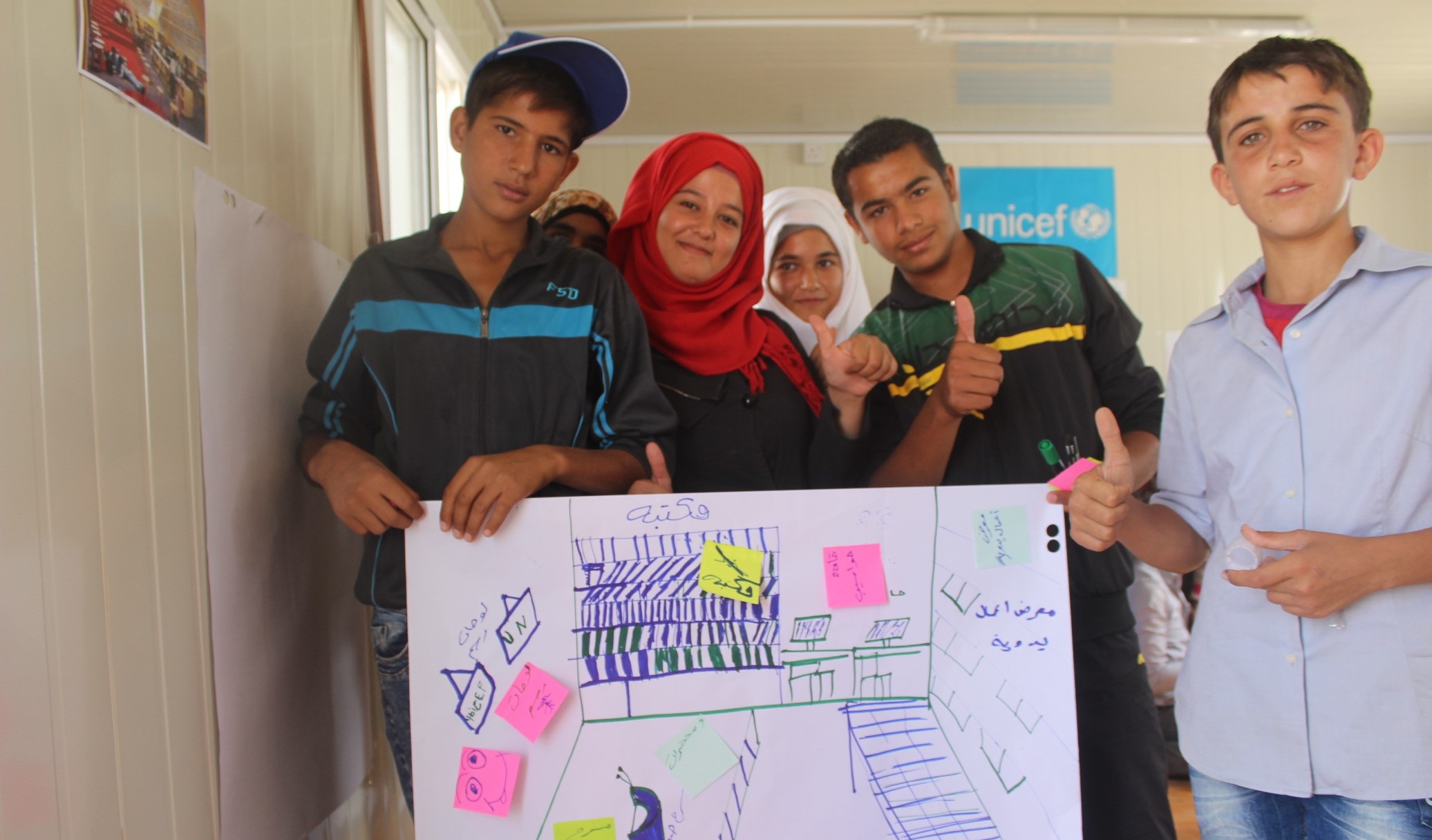By Neil Townsend, DEPP Innovation Programme Manager
It’s home to 50,000 people, living in regimented rows of identical white portable cabins in an arid, cold and windy region of Jordan. Some have been living there for more than three years – men, women and children from across Syria. Many of the youngest children have spent their entire lives there.
At first sight Azraq refugee camp, 30 miles south of the Syrian border and 50 miles from the Jordanian capital, Amman, seems a grim place without much hope – a sense that is only reinforced to a visitor by the vista of long security fences and air of uniformity. But beneath the surface something is stirring: a very human drive to make something of what few opportunities its residents have, and to keep alive their aspirations for a better future.
When I was there earlier this month I was able to witness at first hand the role that innovation can play in changing life in such camps, and beyond them for refugees living in host communities.
The purpose of my visit was to look for opportunities and examples of the kind of work that Start Network’s new innovation labs could enable and support. We announced a plan this month to set up at least four of them in different countries – Jordan among them – and we’re looking for organisations of all kinds that might like to run them.
At the Azraq camp it was inspiring to spend time in similar innovation labs, run by Relief International and funded by UNICEF and aimed specifically at children. Here, a generation that might otherwise grow up entirely without hope are encouraged to think up ideas that would help improve the quality of their lives. Then they are helped to make concrete proposals, to pitch them to funders and, ultimately, to turn them into reality.
The children develop critical life skills along the way which we witnessed at first hand when a group of youngsters - some nervous and some confident - practised pitching their ideas to us. Perhaps most interesting was the energy and excitement that sprang out from the groups as they did so. These labs are helping the children to connect with their aspirations and creativity in way that was exciting and energising to see.
The refugee camps themselves are not such great places to be. The humanitarian system has built itself around meeting people’s needs. This is critical, but when we reduce people simply to the sum of their physical needs then we miss something essential about what it is to be human. A big part of this is the need to build communities that are more than just physical places to live; but it’s equally important that people are enabled to connect with their own hopes and dreams – their futures.
Outside the camps the refugee women we met, who live in host communities, are still being failed by the humanitarian system which is struggling even to support their basic needs. For them there was little hope of thinking about anything beyond putting enough food on the table and trying to keep themselves and their children healthy – a soul-destroying way to live.
But we also met many locally based organisations that are thinking creatively about how to work differently. Some are building communities based around theatres and orchestras, for example, and that reach out to the refugees in unexpected ways. In these places there is a very different sense of a more vibrant life.
I spent time with another organisation, Civic, that‘s working to support this creative community and dreams of doing it much more widely in humanitarian situations. We witnessed this creative energy elsewhere, too. In the Zaatari Refugee camp, many shops are springing up to sell not just food and vegetables but also other services that refugees need – like the hire of wedding dresses to the many people getting married in the camp.
We heard about many other ideas – such as the on-line platform where refugee women use their skills to teach and tutor children abroad, earning money from around the world that feeds back into the local community. In this way they are beginning to build an economy in which refugees are an asset to their host country, not the burden they are so often thought to be.
Supporting these kind of locally driven innovations, focused in this example on refugees, is exactly what the Start Network wants do through its new Innovation Labs. We’re currently looking for potential hosts in Bangladesh, Kenya, Mozambique, Philippines, and Jordan – and we are hoping that some really inspired organisations of all kinds will want to be among them.
Such labs are also a key component of the change we want to see in the humanitarian system, which urgently, and somewhat ironically, needs to find ways to connect with the humanity of the people it seeks to serve. Sometimes we can spend too long trying to change the system as a whole –desirable, but really hard to achieve – and forget that every smaller innovation we make also contributes to changing the bigger system.
Read more about the Start Network's DEPP Innovation Labs
Interested in participating? Submit an expression of interest
Join our webinar or read the FAQ to find out more

